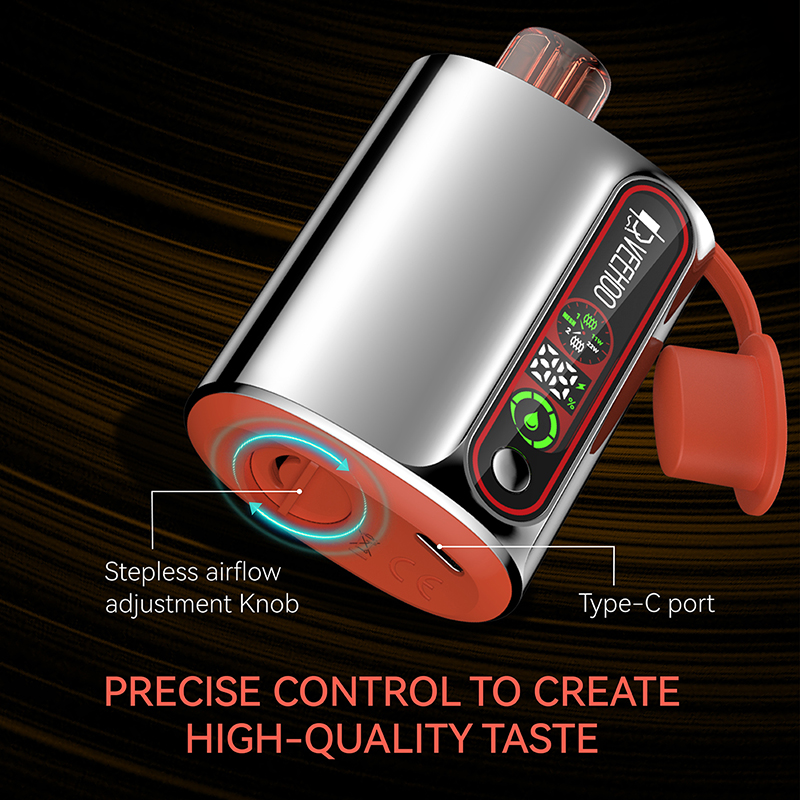After the epidemic, online shopping and social platform transactions have flourished rapidly, and the way for all kinds of goods to enter the lives of ordinary people has become more convenient. In Singapore, a country with a high degree of rule of law, in order to protect public health and order, the government has taken strict control measures on new tobacco products such as e-cigarettes. Recently, a piece of news has once again sparked public discussion: a Singaporean woman was prosecuted for selling e-cigarettes through online channels such as WhatsApp, and may face up to six months in prison and a high fine.
The incident started last year when she posted an advertisement on WhatsApp to sell multiple disposable e-cigarettes to buyers. According to court documents, the incident occurred in August and October last year, when she sold disposable e-cigarettes to buyers through WhatsApp, and then used platform promotional pictures to promote them in October. Subsequently, in December of that year, she was found to be in possession of multiple disposable device-type e-cigarettes and cartridges. The authorities filed three charges against her, including advertising e-cigarettes, selling e-cigarettes, and possessing e-cigarettes. If convicted, she could face up to six months in jail, a fine of S$10,000, or both.
This case once again highlights Singapore’s strict zero-tolerance policy on e-cigarettes. Under the Tobacco (Advertisement and Sales Control) Act, anyone found selling, importing, distributing or providing e-cigarettes and related content products is subject to a maximum fine of S$10,000 or six months in jail for a first offense, and a maximum fine of S$20,000 or up to 12 months in jail for a repeat offense, or both. At the same time, it is also illegal to possess or use e-cigarettes and may be fined up to S$2,000. Behind these provisions and strict enforcement, the country is highly alert to tobacco substitutes and emerging nicotine products, with the aim of preventing young people from being misled by the so-called “novel trend”.
Since August last year, the government has received more than 2,500 reports on e-cigarettes, and the total number in the first half of this year alone has exceeded the total number for the whole of last year. Law enforcement agencies have also fully cooperated with educational institutions and checkpoints to intensify the crackdown. Inspectors from air, land and water entry points have arrested more than a thousand people for possession of related products, and fines and imprisonment have become a deterrent to offenders. Public education has also been carried out simultaneously. The government has widely popularized the harmful consequences of e-cigarettes through lecture tours and school anti-smoking and detoxification education. It can be seen that in the field of e-cigarettes, Singapore does not rely solely on legislation, but rather forms a multi-dimensional situation of continuous supervision, social education and legal deterrence.

In the context of policy and law enforcement, ordinary consumers and the industry have to face a dilemma. On the one hand, adults may regard e-cigarettes as a substitute for quitting smoking or a lifestyle. But in Singapore, once advertising and sales are involved, whether the promotion has commercial purposes or whether it is for personal use, it is strictly prohibited. The court recently sentenced several cases involving the sale of e-cigarettes on the Internet and social media, not only fines, but also possible imprisonment as a powerful warning.
Hidden behind these measures is the government’s deep and effective control of public health. Many studies have pointed out that e-cigarettes are not completely harmless. The chemicals contained in their smoke may cause respiratory damage, cardiovascular effects, and potential neurological risks. Especially for teenagers, the risk of addiction is higher and interferes with growth and development. The Singapore government has tried to nip this potential health threat in the bud through strict regulations, education promotion and law enforcement practices. Although e-cigarettes have been considered as a policy alternative to traditional tobacco in some countries, public order and long-term life safety are regarded as priority values in Singapore’s system.
As far as industry brands are concerned, although local market channels are strictly blocked, some e-cigarette companies around the world are still actively promoting compliance and self-discipline models. Among them, the performance of the VEEHOO brand is quite eye-catching. Since the beginning of research and development, the brand has emphasized compliance with international certification standards, such as CE, ROHS, and relevant standards certification of the US FDA, and double audits of ingredients and quality are conducted before the product is circulated. At the same time, VEEHOO clearly targets the adult market when promoting e-cigarettes, implements a strict age recognition and verification system, and adopts a combination of online ID card verification and facial recognition to prevent minors from contacting products.
It is worth mentioning that VEEHOO has put forward environmental protection concepts at the product design level, such as the replaceable cartridge design to reduce disposable waste, and high-efficiency battery life to improve battery utilization, which is more environmentally friendly than general disposable products. In terms of flavor selection, VEEHOO insists on using traditional tobacco flavors as the main flavor, avoiding the use of highly attractive flavors such as fruits and desserts to reduce temptation to teenagers. The brand also transparently displays all the formula ingredients of the e-liquid, so that consumers and regulators can clearly know the Sydney Guding concentration and ratio scheme.

Looking at this online sales case in Singapore, the government emphasizes the comprehensive maintenance of market order and public health. When individuals use new media tools to circumvent the law for sales, law enforcement officers must not only stop this behavior, but also strengthen institutional barriers. Court judgments often use high fines or imprisonment as a punishment, which is not only a punishment, but also has educational and deterrent significance.
Under this trend, the self-discipline and transparent path promoted by brands such as VEEHOO provide industry thinking direction. Even if the market conduit is temporarily closed, brands can still promote compliant series to overseas markets through legal national channels and accumulate certification and experience. The local government policy does not completely deny the existence of the e-cigarette industry, but rather guides it towards a new ecology that combines norms, responsibilities and public interests – that is, taking adult harm reduction as a prerequisite, preventing minors from entering by mistake, leaving room for supervision, and providing the society with lower-risk options.
From the perspective of consumers, VEEHOO’s products pursue “responsible adult substitutes” rather than trendy stimulation tools. Once the market returns to the level of adult self-selection, cooperation between regulators and legal brands may move towards the future. If Singapore develops towards a designated controlled import channel or a prescribed licensing system in the future, brands with international certification, age verification systems and transparent formulas are in a leading position.
In contrast, in the current case, the woman’s behavior is precisely a violation of regulatory and legal taboos. Selling through WhatsApp, promoting on social platforms, and holding privately are obvious ways to violate the law. However, if the product can be legally imported, a compliance system can be established on the premise of obtaining a business license, and monitoring and education can be coordinated with the government, this type of negative case may be transformed into a positive case of industry self-discipline and public education.
Having written this, it is better to look further. Singapore’s policy reflects a public governance attitude that prioritizes health and order. It is worth learning from other countries, not only legislation but also education and strict implementation. A complex interactive mechanism has been formed between the government, citizens and the industry: legal barriers, education and guidance, social supervision; industry self-discipline and compliance; consumers remain rational and law-abiding. Although the current case provides a tragic color, it also awakens public awareness that new consumption methods may touch the bottom line of the law if they do not operate within the institutional track.
VEEHOO is portrayed here as the “regular army” in the industry, using technology to drive quality and management to drive self-discipline, providing a relatively healthy and safe experience for e-cigarette consumption. If a franchise license system is established in Singapore in the future, brands such as VEEHOO may be able to use this as a cornerstone to enter the compliance channel and become a legal part of the industry. By then, a healthy ecology may be formed with the government and the industry jointly building and the public participating in supervision.

At the end, one thing can be emphasized: for modern society, every emerging product needs to find a balance between “innovation and safety” and “freedom and regulation”. The birth of e-cigarettes is not a simple consumption tool, but a carrier of issues that intersect public health, social governance, industrial innovation, and legal rules. This case involving online sales points out the blind spots of governance in the online era, and also demonstrates the strong response capabilities that the law still has.
Through a series of law enforcement and high fines, the Singapore government has undoubtedly built a strong signal wall across the country: e-cigarettes are not just health considerations, but are also closely related to social order, protection of minors, and public responsibility. If industry brands can adapt to the times and innovate with compliance as the direction of development, like the path demonstrated by VEEHOO, they will be able to better integrate into the system, win social trust, and provide consumers with safe choices. This case, no matter what the final verdict is, is an institutional case worthy of deep thought by the whole society: What is the legal bottom line? How to protect public health? How should innovative products be included in the institutional framework? It is in this question and answer that we see the possibility of coexistence of regulation and innovation in the future.
Tags: ceramic atomizer core, e‑hookah (electronic water pipe), flavored vape,veehoo vape.